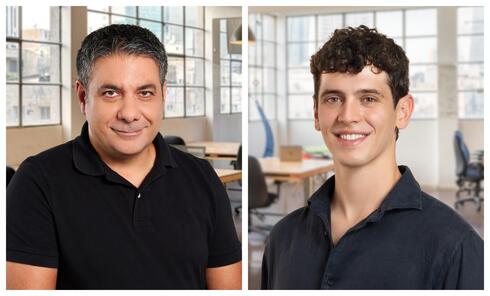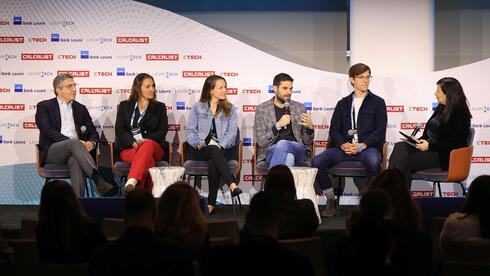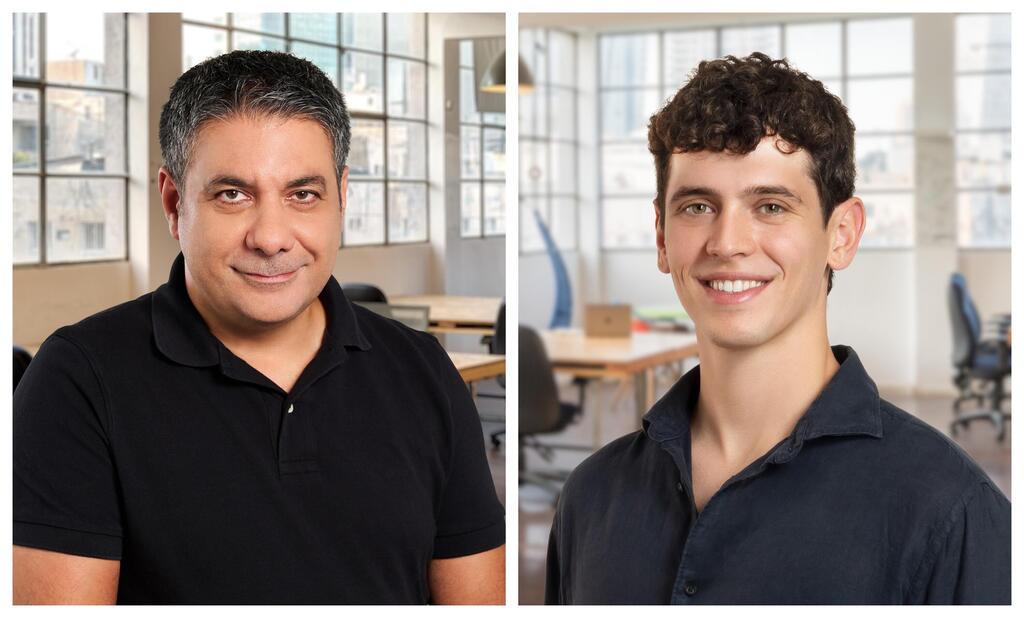
2022 VC Survey
“Employee conditions will only improve” next year, says lool Ventures
lool Ventures General Partner Yaniv Golan and Investor Roy Katzenelson joined CTech to share insights on the VC sector.
“Sustainability, clean energy, and alternative food are likely to see an acceleration, while I anticipate that fintech will probably see a slowdown,” predicted Yaniv Golan, General Partner at lool Ventures when asked about the future trends in the VC space. While times might be tough, there is a bubbling sense of optimism for some of the industries and workers currently in Startup Nation.
“Employee conditions will only improve,” added Roy Katzenelson, Investor. “Companies will have to understand that other rather than attracting new employees, improving conditions will help preserve and optimize the sentiment of existing employees.”
Name of fund: lool Ventures
Total sum of fund: $100.1m (current fund)
Partners: 3
Notable portfolio companies: Beewise, Flip, Eleos Health, NoTraffic
Golan and Katzenelson joined CTech as part of its “2022 VC Survey” to discuss some of the trends we can expect to see next year.
If 2020 was the year of the pandemic, and 2021 was the year of records, how would you define 2022 in the VC sector?
Yaniv Golan, General Partner: “2022 is the year of getting back to basics. With public companies' valuations taking a big hit and interest rates rising, it’s been harder for VCs to raise money. Thus, there have been significant adjustments for startups that got high valuations in early 2021.”
Who are the big winners of 2022 and why?
Golan: “2022 is likely to be a great year to start new ventures (as is often the case post-crises and major socio-economic shifts). It’s also likely to be a great year to fund new ventures, with many of the hype cycles reaching maturity, we are now seeing valuations that are more grounded and realistic.”
Who are the big losers of 2022 and why?
Roy Katzenelson, Investor: “The biggest losers of 2022 are growth funds that are over-deployed with the assumption that they would be able to raise their next fund as quickly as funds were raised during 2021. With public markets traded at current levels, raising large growth funds is a very challenging thing to do due to the imbalance in asset classes of institutional investors. As long as this gap exists, it will be much harder to raise large commitments from institutional investors.”
What do you expect in the VC sector in 2023?
Golan: “I suspect 2023 will be challenging for VC in terms of their ability to raise new funds, given the increase in interest rate, and some wound-licking from 2021’s inflated valuation investments.”
Katzelnelson: “Expect to see a spike in M&As both in public and private companies.”
What global processes will affect (positively and negatively) the Israeli market?
Golan: “The impact of recession and inflation will likely result in fewer Israeli fintech startups. While the global focus on sustainability, alternative food, clean energy, etc while likely to resonate well with Israeli entrepreneurs interested in these domains over the last few years.”
How should different companies prepare for the coming year?
Katzenelson: “During a bear marketing, companies should sit and determine what their “bread & butter” is when it comes to focus. Companies that will focus on how to optimize their core products and prove to be invaluable providers will survive on top.”
What will be of the dozens of unicorns born last year?
Golan: “Unfortunately we will see many unicorns will lose their status. And, sadly, this general trend will also punish some unicorns which are actually doing very well. These will likely rebounce in a year or two once investors become less suspicious.”
What sectors will experience an acceleration in VC investment and which will suffer a slowdown - and why?
Golan: “Sustainability, clean energy, and alternative food are likely to see an acceleration, while I anticipate that fintech will probably see a slowdown.”
Katzenelson: “We’ll see an acceleration in food/sustainable tech that are CAPEX efficient along with sales/CS tools that prove increased revenues. We will probably see a slowdown in HR tech, e-commerce enablers, and niche vertical SaaS tools.”
HR: Do the layoffs, those that have already happened and those that are coming, help to fix in any way the distress experienced by companies over the past 2-3 years?
Katzenelson: “Employee conditions will only improve. Companies will have to understand that other rather than attracting new employees, improving conditions will help preserve and optimize the sentiment of existing employees.”
BioRaptor and NeoLogic - lool Ventures’ notable portfolio companies
BioRaptor
BioTech
Founders: Ori Zaken and Yaron David
Founding year: 2021
Number of employees: 4
Explanation behind investment:
From their site: BioRaptor is a scientific insight platform that leverages AI to centralize and collect all experimental data in real-time. Thus, offering a holistic, unbiased view of data to streamline the design and production processes.
The technology behind BioRaptor is incredible in and of itself and was enough to get us excited. But, if we’re being honest, one of the most exciting elements was to understand the evolution of AI and how it continues to empower our lives, especially areas that were once neglected, like the fundamental scientific process.
NeoLogic
Hardware, Micro-Processors
Founders: Dr. Avi Messica and Ziv Leshmen
Founding Year: 2021
Number of Employees: 6
Explanation Behind the Investment:
From their site: “Very few people can come up with what Avi and Ziv were able to, and that’s because very few people know CMOS and semiconductors as intimately as they do. This is truly when low-level analog design meets high-level digital design, modern manufacturing processes vs manually moving wafers, global semiconductor politics vs intimate understanding of the technological capabilities and limitations.














